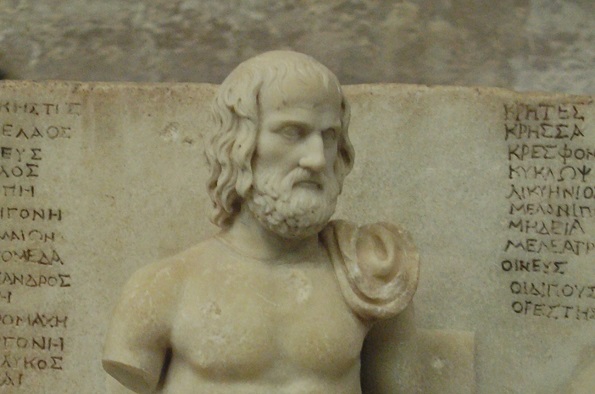
Dead like a Woman: The Beautiful Death of the Sacrificial Virgin in Euripides’ Iphigenia at Aulis and The Children of Heracles (Cristiana Lucidi, University of Roehampton)
Add this event to my calendar
Click on "Create a calendar file" and your browser will download a .ics file for this event.
Microsoft Outlook: Download the file, double-click it to open it in Outlook, then click on "Save & Close" to save it to your calendar. If that doesn't work go into Outlook, click on the File tab, then on Open & Export, then Open Calendar. Select your .ics file then click on "Save & Close".
Google Calendar: download the file, then go into your calendar. On the left where it says "Other calendars" click on the arrow icon and then click on Import calendar. Click on Browse and select the .ics file, then click on Import.
Apple Calendar: The file may open automatically with an option to save it to your calendar. If not, download the file, then you can either drag it to Calendar or import the file by going to File >Import > Import and choosing the .ics file.
The present paper, analysing the way Euripides treats Iphigenia in Iphigenia at Aulis and Macaria in The Children of Heracles, will demonstrate that in these plays the intentional death of the sacrificial virgin appears to be not unlike that of the warrior on the battlefield. In fact, Euripides tends “to masculinise” the courage of the two maidens through the same estheticizing lexicon traditionally used to describe the beautiful death of a hero or a citizen-in-arms on the battlefield. In any case, the peculiar way Iphigenia and Macaria die still confine them to the female area, drawing an insurmountable line between sexes. Thus, being the civic role of women eminently religious (in Athens they could be priestess of important civic cults, first and foremost that of Athena), they could die a beautiful death and gain a perennial glory only turning themselves into sacrificial victims and being immolated on the altar of the god. In this way, they could seal their fate in perfect alignment with their social position, just like the male soldier did by losing his life in battle. This event is part of the Work in Progress seminar series
